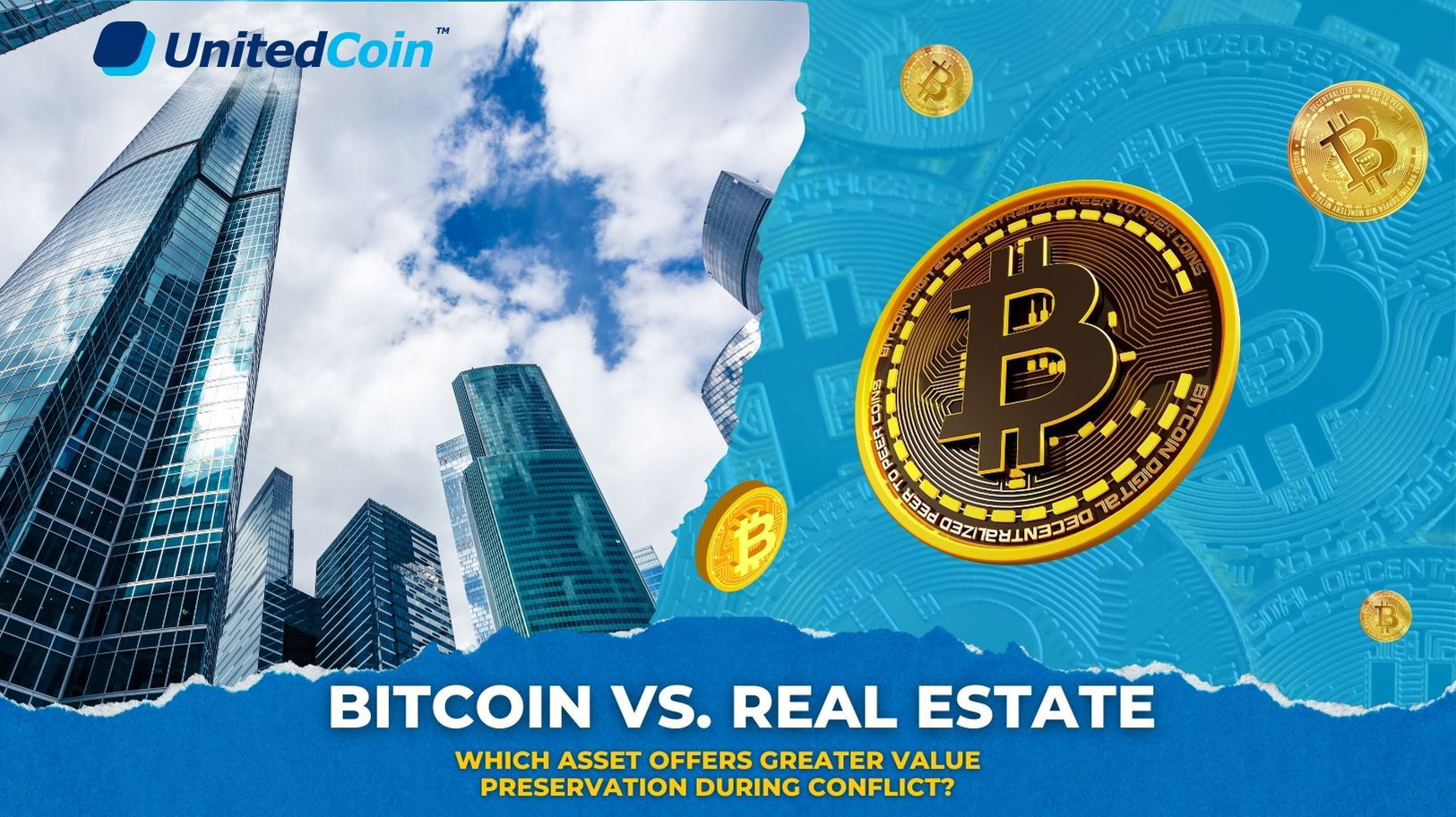In German, the term for real estate is “Immobilie,” which literally translates to “immobile.” Owning real estate ties you to a specific location, which can be problematic in a world facing escalating conflicts and radicalization. In the event of a war, real estate cannot be easily transported and is vulnerable to destruction.
While this may seem like a dystopian viewpoint, it’s essential to consider worst-case scenarios and their potential global repercussions when it comes to long-term wealth management.
War and The Destruction of Wealth
In the 21st century, the cost of war has been staggering for humanity. Last year alone, over 238,000 people lost their lives in conflicts worldwide. Regions like Syria, Sudan, Ukraine, Palestine, Israel, and Lebanon have become hotspots of global conflict, leading to massive destruction and loss of property value.
In these areas, properties have been decimated, and the wealth stored in them has disappeared. The financial repercussions are unimaginable, adding to the already immense suffering and grief caused by war.
Real estate is traditionally seen as a safe investment worldwide, with some exceptions like Japan. However, the increasing threat of destruction due to conflicts puts the hard-earned wealth of millions, possibly billions, of people at risk. Throughout history, alongside inflation and taxation, physical destruction of wealth has been a significant threat to prosperity.
Even in ancient times, armies looted cities and destroyed residents’ belongings, highlighting the enduring impact of war on wealth and society.
Physical Vs. Digital Store of Value
Bitcoin offers a solution to the threat of physical asset destruction by providing a digital, nearly indestructible store of value that is also highly portable.
Introduced in 2009, Bitcoin has challenged the traditional role of real estate as the preferred store of value. It offers a superior alternative that enables people worldwide to safeguard their wealth with ease.
Bitcoin allows for the purchase of very small denominations, with the smallest unit being 1 satoshi (1/100,000,000 of a bitcoin) valued at approximately $0.0002616 (as of 2/12/2024). Storing bitcoin securely requires only a basic computer without internet access and a BIP39 Key generator, or a hardware wallet that can be purchased for around $50. In the event of relocation, users can memorize a 12-word backup phrase (seed phrase) for their wallet, enabling them to “take” their bitcoin with them.
Digitalization
Digitization enhances nearly all functions related to preserving value. Bitcoin, in particular, stands out as a rare, accessible, cost-effective, and liquid asset that offers the crucial benefit of mobility during crises.
Bitcoin represents wealth that is inherently yours. In the face of looming global conflicts, I argue that holding wealth in a digital asset like bitcoin is superior to investing in physical assets such as real estate, gold, or art. Unlike these tangible assets, digital assets are less susceptible to taxation, destruction, or confiscation.
Property Confiscation
Throughout history, physical stores of value have often made individuals vulnerable to government overreach. One notable example is the expropriation of Jewish property in Nazi Germany. Unfortunately, such instances of repression are not isolated incidents in history; they occur regularly. For instance, many individuals lost their property in Cuba when Fidel Castro took control, as highlighted by Michael J Saylor.
These historical examples emphasize the importance of safeguarding wealth in a digital asset like bitcoin. Unlike physical assets, bitcoin is challenging to confiscate, tax, or destroy, and it offers ease of mobility, providing a crucial layer of protection in times of uncertainty.
Additionally, changes in the macroeconomic environment can quickly devalue real estate. Real estate purchases often involve loans, so when interest rates rise, the affordability of financing decreases. This leads to lower demand and, consequently, a drop in property prices. Currently, we are witnessing this situation unfold globally, where the combination of higher interest rates and reduced demand is contributing to the decline in property values worldwide.
Bitcoin Vs. Real Estate
Bitcoin is less susceptible to the challenges of the traditional fiat financial system compared to real estate, as it operates independently of the system. Variables such as interest rates, central bank decisions, and arbitrary governmental actions have limited influence on bitcoin. Its price is primarily determined by its supply, issuance schedule, and adoption rate.
Bitcoin follows a disinflationary model, which means its supply gradually decreases over time until it reaches a hard limit in 2140. Approximately every four years, the amount of bitcoin awarded to miners for successfully ordering transactions (every 10 minutes) is halved.
The upcoming halving, scheduled for Friday, April 19, 2024, is expected to reduce the block reward from 6.25 bitcoin to 3.125. This translates to a daily issuance of 450 bitcoin instead of 900.
Currently, bitcoin has an annual inflation rate of around 1.8%, which is expected to decrease to 0.9% after the upcoming halving. Subsequently, the inflation rate will become almost negligible. Furthermore, a significant number of bitcoins have been lost, and it’s expected that more will be lost in the future. This continual reduction in the finite supply increases the deflationary pressure within the Bitcoin network. As more people (and machines) use bitcoin, the increasing demand is met with decreasing supply.
This strong deflationary trend is not observed in real estate. While real estate is also scarce due to limited building land, there is no hard cap. New building land can be developed, and zoning laws can allow for the construction of additional floors, for example.
For many people, it’s challenging to grasp the impact of a fixed supply on an asset’s price. Before Bitcoin, there was no concept of an inherently scarce commodity. Even gold, often seen as a scarce resource, has an elastic supply. Increased demand for gold leads to more intensive mining efforts, a flexibility that doesn’t apply to bitcoin.
As a result, with each halving event, which signifies a reduction in supply, the price of bitcoin rises and continues to do so indefinitely. This perpetual increase persists as long as there is corresponding demand, a likelihood attributed to bitcoin’s exceptional monetary properties.
This dynamic is expected to persist even during a global economic crisis. The supply of bitcoin will continue to decrease, likely resulting in a continued rise in price. This is due to the anticipated sustained demand during times of crisis, as previously explained. Additionally, even inflation can positively impact the price of bitcoin, as it leads to an increased availability of fiat currencies that can be invested in bitcoin.
Conclusion
In a world marked by increasing radicalization and a financial system experiencing profound crises, bitcoin emerges as a superior option for storing value, particularly during periods of macroeconomic instability. The importance of bitcoin is expected to grow during these tumultuous times, possibly surpassing real estate as humanity’s preferred store of value in the distant future.
It is hoped that more individuals will recognize the advantages of bitcoin, not only for wealth preservation but also for securing their livelihoods in extreme circumstances.




